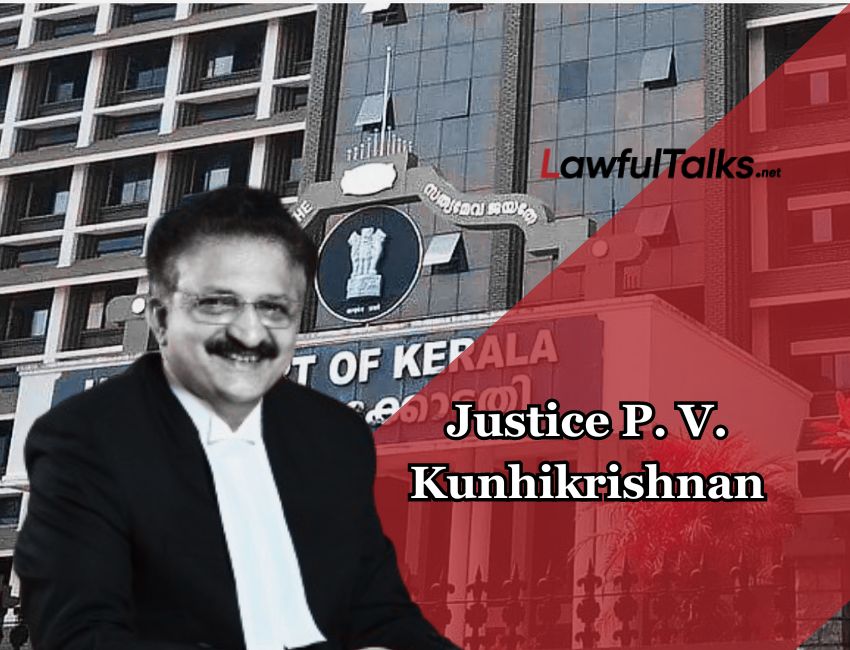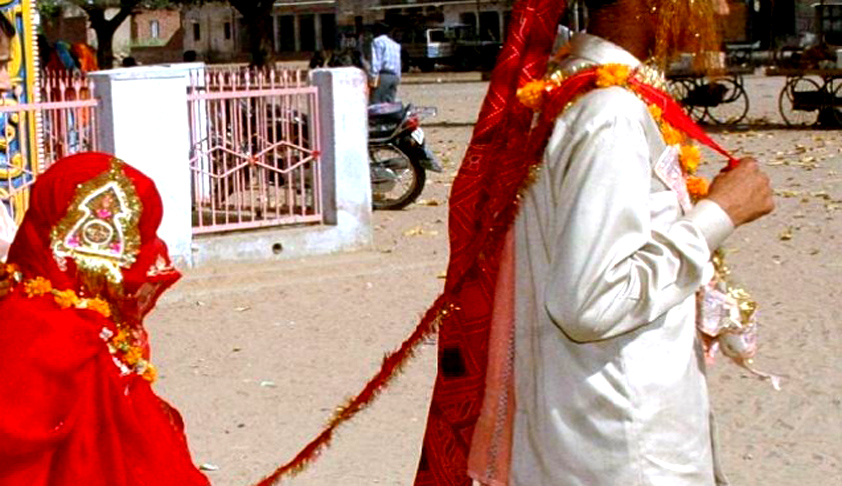Allahabad HC Sets Aside Afzal Ansari's Conviction, Allows Him to Continue as MP

In a significant case on 15/06/2024, the Kerala High Court, presided over by Hon’ble Justice P. V. Kunhikrishnan, made a crucial decision stating that:
"…religion is secondary and citizenship is primary. When Act 2006 prohibits child marriage, the same is applicable to all, irrespective of religion, whether the parties are Hindus, Muslims, Christians, Parsis, etc."

The incident involved an Integrated Child Development Services (ICDS) officer in Vadakkencherry reporting a child marriage to the Circle Inspector of Police following a complaint from K. Syed Muhammed, who alleged that the marriage took place on 30.12.2012. This led to Crime No. 490/2014 being registered for offenses under Sections 10 and 11 of the Prohibition of Child Marriage Act, 2006 (hereinafter referred to as the 2006 Act). The investigation resulted in a final report against five accused. According to the prosecution, the first accused arranged the marriage of his underage daughter to the second accused. The accused contended that no offense under the 2006 Act applies and that continuing the proceedings is an abuse of court process, leading them to file this Criminal Miscellaneous Case.
The petitioner-accused argued that Mohemeddan Law recognizes and accepts marriage of a minor girl who has attained puberty as voidable at the instance of the married girl on attainment of majority age. It was also submitted that even as per the secular law, such marriages are not void ab initio but only voidable at the option of contracting parties. Other arguments included the assertion that the 2006 Act is superseded by Muslim personal laws, the complaint was filed late enough to show malicious intent, and the girl's birthdate was misrecorded by the school administration.

Amicus Curiae Adv. K.M. Firoz and the Public Prosecutor argued 2006 Act overrides personal law. The Prohibition of Child Marriage Act, 2006, superseded previous laws and applied to all Indian citizens, extending beyond India. The Act aimed to prevent child marriages, providing provisions for maintenance, custody, and legitimacy of children from such marriages. It empowered courts to issue injunctions and declared child marriages void in specific circumstances. Offences under this 2006 Act were cognizable and non-bailable. Child Marriage Prohibition Officers had duties including preventing child marriages, collecting evidence, advising against promoting such marriages, and creating awareness. The crux of the submission of the Amicus Curiae is that when the 2006 Act is in force, the same will override the personal law of the parties. The Public Prosecutor also supported the argument of the Amicus Curiae and submitted that there is nothing to interfere with the final report.
The judgment began by expressing disappointment, stating,:
"Kerala is known for its 100% literacy. But it is sad to hear that, even after the enactment of the Prohibition of Child Marriage Act decades ago, there are allegations of child marriage in Kerala. The saddest thing is that the petitioners herein are trying to justify the alleged child marriage, stating that as per Mohammedan law, a Muslim girl enjoys a religious right to marry after attaining puberty irrespective of age, even though the Prohibition of Child Marriage Act applies to all the citizens of India without and beyond India."
To the issue of whether the Mohammedans are exempted from the applicability of 2006 Act? The court concluded in negative by observing that the 2006 Act will override the provisions of the Majority Act as far as child marriage is concerned, and the provisions of the 2006 Act, which was subsequently enacted, are applicable to Muslims also as far as child marriage is concerned.
In the concurring opinion of the Apex Court's decision in Independent Thought v. Union of India and Another [2017 KHC 6719], Hon'able Justice Deepak Gupta observed that 2006 Act is a special Act dealing with children, and the provisions of this Act will prevail over the provisions of both the Hindu Marriage Act and the Muslim Marriages and Divorce Act, in so far as children are concerned.
The Court noted that Parliament enacted 2006 Act in response to demands for strengthening the Child Marriage Restraint Act 1929 to prevent child marriages more effectively. Section 1(2) of 2006 Act states that it extends to the whole of India and applies to all Indian citizens, both within and beyond India. This means that the Act applies to all Indian citizens, regardless of their religion, whether Hindu, Muslim, Parsi, Christian, etc. The Act has extraterritorial jurisdiction, applying to Indian citizens living abroad as well as those residing in India. Therefore, the phrase 'without and beyond India' in 2006 Act extends the law to Indian citizens regardless of their location. A perusal of the provisions of 2006 Act would show that it is a complete code as far as child marriage is concerned. It is a special law enacted by the Parliament with a great object. Therefore, it is the duty of the officials to see that the provisions of 2006 Act are implemented in its letter and spirit.

The Hon'ble Court also noted that the petitioner argued that Muslim personal law allows a Muslim of sound mind who has attained puberty to marry, suggesting 2006 Act does not apply to Muslims. However, the case was initiated by a Muslim individual, Mr. Syed Muhammed, who filed a complaint with the Child Development Project Officer, leading to a police complaint and FIR registration. This shows that members of the Muslim community oppose child marriage, showing that citizens uphold the Act of Parliament regardless of religion. It reflects a widespread awareness of the evilness of child marriage among all citizens, irrespective of their religion.
"A person should be a citizen of India first, and thereafter only his religion comes. Religion is secondary and citizenship should come first. Therefore, I am of the considered opinion that, irrespective of religion, whether a person is Hindu, Muslim, Christian, Parsi, etc., Act 2006 is applicable to all."
Karnataka High Court in Seema Begaum v. State of Karnataka [2013 SCC Online Kar 692] observed that no Indian citizen, on the ground of belonging to a particular religion, can claim immunity from the application of 2006 Act, as the Act applies uniformly to all citizens.
A Full Bench of the Delhi High Court in Court on its own motion (Lajja Devi) and Others v. State and Others [2012 KHC 2782] observed that 2006 Act, being a special law, will have overriding effect over the Hindu Marriage Act to the extent of any inconsistency between the two enactments.
Similarly, the Gujarat High Court in Yunusbhai Usmanbhai Shaikh v. State of Gujarat [2016 KHC 2446] observed that the Muslim personal law would not prevail over the Prohibition of Child Marriage Act.
Kerala High Court in Khaledur Rahman v. State of Kerala [2022 (7) KHC 264] observed that marriage between Muslims under personal law is not excluded from the sweep of the POCSO Act, and if one of the parties to the marriage is a minor, irrespective of the validity or otherwise of the marriage, offenses under the POCSO Act will apply.

J. Kunhikrishnan disagreed with the decisions of the Patna High Court, Punjab and Haryana High Court, and the Delhi High Court in Md. Idris v. State of Bihar and Others [1980 KHC 1043], Kammu v. State of Haryana [MANU/PH/5039/2010], and Tahra Begum v. State of Delhi & Ors. [2012 SCC Online Delhi 2714], respectively, which supported marriage of a minor Muslim girl.
As per Jutice Kunhikrishnan, the contention of the petitioners of wrong birthdate in the school register cannot be accepted to quash the proceedings at this stage and that it is a matter of evidence. The petitioners are free to adduce evidence on that before the trial court at the appropriate stage, and the court concerned will consider the same in accordance with law based on the evidence adduced by the petitioners.
The other contention that there is 1½ years' delay in filing the complaint after the marriage was also rejected. The court held that the purpose of 2006 Act is to eradicate child marriage. When a citizen, who is also a person belonging to the Muslim community, submits a complaint stating that there is a child marriage in his religion, the Court cannot reject the same, saying that there is a delay in submitting the complaint.

Prohibiting child marriage is vital as it denies children their rights to education, health, and protection from exploitation. Early marriage not only results in health issues such as infant and maternal mortality but also compels girls to abandon their education, leaving them susceptible to domestic violence. It leads to poverty and causes emotional trauma. Child marriage violates international human rights laws. Children should be allowed to study and enjoy life until they can make mature decisions about marriage. Citizens, NGOs, judicial authorities, and the media must work together to prevent child marriages and protect girls.
After considering the facts and legal aspects, the Hon'ble Court concluded that the petitioners failed to establish grounds to dismiss the proceedings, leading to the dismissal of the case. But he made it clear that the petitioners can adduce evidence to prove their case before the trial court at the appropriate stage. He also made it clear that, at the time of trial, the learned magistrate will decide the matter untrammeled by any observation in this judgment on merit except on questions of law decided by this court.
Case Details: Moidutty Musliyar v. Sub Inspector, 2024 SCC OnLine Ker 4188
(For more updates, tap to join our Whatsapp Channel. and our LinkedIn Page)

Sonam Pandey
Law Student
Latest Posts
Categories
- International News 19 Posts
- Supreme Court 352 Posts
- High Courts 366 Posts




























































































































































































































































































































































































































































































































































































































































































































































